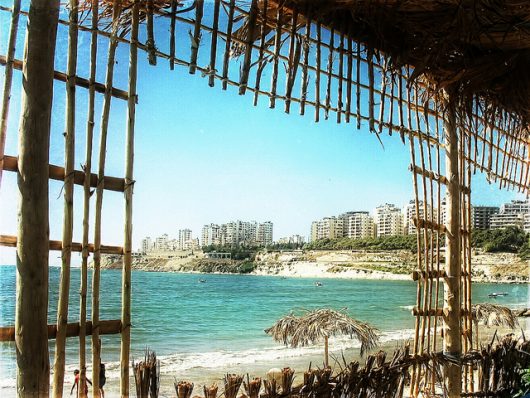The IARAN Keeps Its Eyes on the Future
 Meet the Inter-Agency Regional Analysis Network (IARAN), a team of nine that is changing the way non-governmental organizations (NGOs) think about aid.
Meet the Inter-Agency Regional Analysis Network (IARAN), a team of nine that is changing the way non-governmental organizations (NGOs) think about aid.
The IARAN, which gained international acclaim when it published “The Future of Aid, INGOs in 2030” report in July, helps humanitarian organizations all over the world by informing NGO strategy through its research about the changing nature of global humanitarianism. Paramount to its mission is ensuring that NGOs around the world harness foresight and modernized approaches to aid when addressing crises.
The group first worked with Save the Children International in 2012 and is now partnering with the international-nonprofit Action Against Hunger to introduce the organization to more proactive and sustainable methods of programming. In both its test-run with Save the Children and its current pilot phase, the group has seen a real change in the way each organization operates — an indicator of success.
The Borgen Project spoke to the IARAN Director Michel Maietta and Communications and Event Manager Leonie Le Borgne about the IARAN’s progress thus far and its ambitions going forward.
“The vision that is behind this program is actually how to contribute to alleviating poverty in a more efficient and preemptive way,” Maietta said. “Most of the humanitarian NGOs are very reactive. Naturally, you want to react when there is a threat. But the problem with reaction is that in the long-term there is no sustainability, and the problem will remain, the vulnerability will remain.”
To create sustainable solutions to the problems endangering the world’s most vulnerable, Maietta argued, NGOs must anticipate and address the root causes of global crises before they manifest. Many of today’s organizations have not practiced such foresight and as a result have not been able to adapt to new challenges or innovate in meaningful ways, yielding disastrous results.
“The refugee crisis that Europe is facing today is a direct consequence of the inability of the humanitarian system to directly access the population in Syria,” Maietta said.
Alternatively, when NGOs prepare for the future and create mechanisms that reduce damage down the line, they greatly increase their potential for positive impact. Planning as far as 15 years in the future can save lives as well as money, and more generally, increases organizational efficiency.
The IARAN aims to bring strategies of preparedness into the humanitarian mainstream.
“[The IARAN is] completely unable to diagnose the Hurricane Irma impact,” Maietta said when describing the IARAN’s scope of influence, “but what we can do is address the root causes of Irma, which are the warming of the Atlantic Ocean and climate change, and then help game-changers to design a preemptive strategy that can actually correct or re-address these root causes.”
Preemptive planning also allows organizations to be quicker and more flexible in their responses to disaster.
“Reactivity and life-saving response, and then strategy, preemptive news and the capacity to address root causes of the problems — the two can be done together. But, you need both. You cannot have one or the other.”
In addition to developing and expanding their work with NGOs, Maietta and his team are also working to enhance the humanitarian leadership graduate programs of two universities in France and Australia. The aim is to ready the next generation of humanitarian managers and directors for the global challenges ahead. This leadership is crucial for the creation of lasting and effective change within NGOs.
“We strongly believe that the humanitarian actors today are very good tacticians because they are very, very reactive,” Maietta said, “but the humanitarian system needs to have strategic leaders, leaders that can handle strategy in a very complex way because the context where we are interacting is very complex.”
The IARAN additionally publishes between 35 and 50 reports a year on a variety of issues, ranging from alleviating poverty to addressing undernutrition to responding to global migration crises. It will also produce a book in the next year that will discuss the organization’s findings from the last four years, including how it developed its methodology and promoted an organizational change in Save the Children and Action Against Hunger.
While the IARAN and its many projects are instrumental in promoting change within humanitarian organizations, the organizations themselves must act for any real progress to occur.
“The mission of IARAN is to offer food for thought but change will not happen without the actors,” Maietta said. “The actors need to be able to be the protagonists of the change.”
Time will only tell if NGOs take up Maietta’s call to action.
– Sabine Poux
Photo: Flickr
